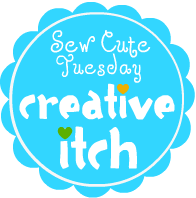“Wow! Why did they hire a lactation consultant for the gorilla?” I asked.
“Well, gorillas learn how to breastfeed by watching their own mothers and their peers. And gorillas raised in captivity don’t have that community to learn from, so even though the baby knows how to breastfeed, the mother does not.”
Wait. It gets better.
“And if the mother and the baby don’t create the bond formed by breastfeeding, the baby won’t thrive.”
Wow. Really. And they didn’t just think it was easier to give the baby a bottle, huh.
Hiring lactation consultants for gorillas raised in captivity isn’t a new concept. In fact, the story of one gorilla whose keepers hired La Leche League leaders to come in and show her how to breastfeed by example is described in the book “So That’s What They’re For!: The Definitive Breastfeeding Guide.”
It’s interesting that zookeepers realize the importance of facilitating that mother-baby bond, yet some health care professionals are so quick to suggest offering human babies a bottle of formula. When the lactation consultant comes around in the hospital, she’s still showing you more of the technical way to breastfeed.
The gorilla described in “So That’s What They’re For!” only needed an example. She needed to see other women breastfeeding, and then she knew what to do. When women in our culture have questions about breastfeeding, or when it doesn’t come easy right away, it’s easy for them to turn to formula, because it’s handed out for free at many hospitals, it’s advertised in parenting magazines, and it’s what moms see on movies and TV.
Maybe if our media showed more mothers breastfeeding and our hospitals enabled more mother-to-mother lactation support, more women would be comfortable with it, and they would be able to learn from example.
Yes, we’re humans. We are capable of creating new technology. Is that always better? In the case of breastmilk, not necessarily. Scientists are far from recreating the living benefits of breastmilk in formula. In promoting the survival of the human species, sometimes it’s beneficial to look toward nature instead of toward technology. Zookeepers feel that it’s important for the survival of the primates in their care. Why aren’t health care providers advocating the same way for humans?
***
I’m celebrating World Breastfeeding Week with Natural Parents Network!
You can, too — link up your breastfeeding posts from August 1-7 in the linky below, and enjoy reading, commenting on, and sharing the posts collected here and on Natural Parents Network.
(Visit NPN for the code to place on your blog.)























2 comments:
awesome. happy breastfeeding week tmuffin!
The messed up thing is, I would not be surprised AT ALL if they did just give that baby monkey a bottle. Because that is where our society is now. Hell, people would probably be impressed at how 'evolved' the monkey was for bottle feeding. And next thing you know that monkey is bottle propping and there is a Similac advert outside the animal's cage.
I have heard that, about captive gorillas having to learn to breastfeed from humans, and found it so interesting. And it says something great about community.
Post a Comment